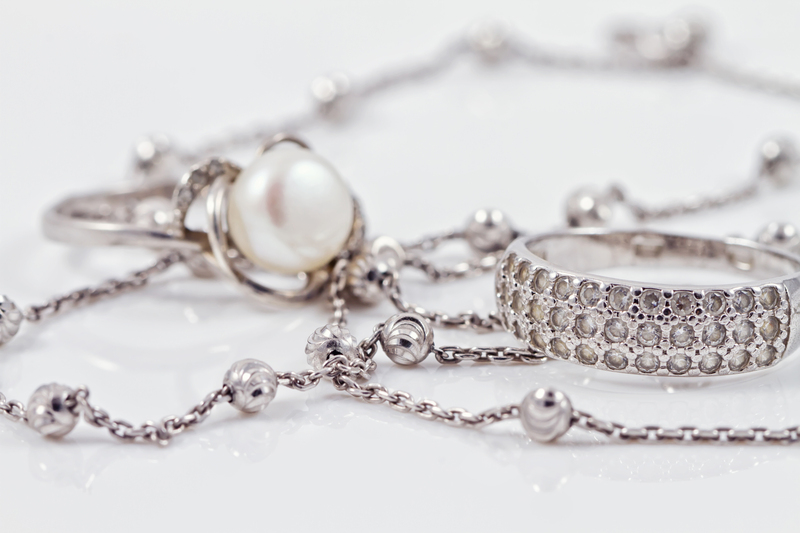Discover Why Moving a Piano is Best Left to Pros
Posted on 21/06/2025
Discover Why Moving a Piano is Best Left to Pros
Whether you own a classic grand piano that's been in your family for generations or a modern upright piano, it's likely among your most treasured possessions. If relocation is in your future, you might be contemplating whether to attempt moving your piano yourself or hire professionals. Discover why moving a piano is best left to pros--and learn how professional piano movers can protect your instrument, your property, and your peace of mind.

The Unique Challenges of Moving a Piano
On the surface, relocating a piano may simply appear to be a matter of manpower and muscle. However, moving a piano is a delicate task that involves much more than lifting and carrying a heavy object. The average piano contains thousands of small, precise components, including strings, felt, wood, and intricate action parts. Even small jolts during a move can drastically affect the piano's sound, alignment, or function.
- Weight & Size: Pianos often weigh anywhere from 300 to over 1,200 pounds, with awkward dimensions that don't fit easily around doorways or stairs.
- Fragility: Pianos are sensitive to vibrations, tilts, and bumps. An unbalanced move could damage the frame or internal parts.
- Complexity: Grand pianos require partial disassembly, careful leg removal, and special equipment for safe movement.
Given this complexity, professional piano movers are equipped with specialized tools, techniques, and experience, making the process smooth and secure.
The Risks of DIY Piano Moving
1. Personal Injury
Musculoskeletal injuries like back strains, sprained ankles, or even fractures are common among untrained individuals attempting to move heavy pianos. Pianos' uneven weight distribution can easily cause them to tip or shift unexpectedly, risking injuries or worse.
Even with a team of friends, the lack of proper lifting techniques and equipment often leads to painful accidents.
2. Property Damage
Attempting to move a piano without experience can result in:
- Scratched floors, gouged walls, or dented door frames
- Damaged stairs or carpets
- Broken tiles from dropped or dragged instruments
Repairs to these areas can be expensive and time-consuming, often far exceeding the cost of hiring professional piano movers.
3. Irreversible Piano Damage
The most alarming risk? Potentially destroying your prized piano. Common DIY mistakes include:
- Dropping the piano, cracking the soundboard or splitting the casing
- Forcing the piano through tight hallways, damaging keys or pedals
- Internal misalignment or broken strings from improper handling
Even minor warping can lead to expensive tuning and restorative repairs--or, in the worst case, render the piano unplayable.
Why Professional Piano Movers Make a Crucial Difference
Specialized Equipment and Tools
When you hire professionals to move your piano, they arrive with:
- Piano dollies and skid boards designed for weight distribution and stability
- Custom straps and moving blankets for maximum protection
- Ramps and hoists for navigating stairs or multi-level properties
Trained Personnel
Professional piano movers undergo extensive training to master techniques such as pivoting, balancing, and careful disassembly. Their experience enables them to anticipate and solve unforeseen challenges--whether maneuvering a grand piano down a spiral staircase or squeezing an upright through a narrow doorway.
Liability and Insurance Coverage
Another critical advantage to trusting piano relocation to experts? Comprehensive insurance. Reputable piano moving companies offer coverage to safeguard your instrument and property throughout the move. If an accident occurs, the costs of repair or replacement are covered, saving you from potentially devastating expenses.
Inside the Process: How Expert Piano Movers Work
1. Pre-Move Assessment
Before the move, professionals carry out a thorough inspection. They consider:
- Piano type and dimensions (grand, baby grand, spinet, console, upright, etc.)
- Pathways from current to new location, noting stairs, tight corners, or elevators
- Floor type and potential risks
Knowing the precise details allows them to select the correct tools and number of movers needed.
2. Secure Disassembly
For grand or baby grand pianos, movers may carefully remove legs, pedals, and lids, packing each separately. This process minimizes risk and ensures each piece is handled safely.
3. Protective Wrapping
Moving blankets, padding, and stretch wrap shield the piano's finish from bumps and scrapes. Keyboards are locked or covered to prevent key damage. Everything is wrapped with attention to detail.
4. Controlled Movement
Using dollies, trolleys, and skid boards, pros carefully roll or carry the piano, lifting only when absolutely necessary. Every movement is controlled and planned, often with one person steering and others maneuvering.
5. Safe Transportation
In the moving truck, your instrument is firmly secured--often with straps anchored to prevent shifting during transit. Climate control may be used for especially sensitive or antique models.
6. Placement and Reassembly
Upon arrival, the process is reversed, ensuring the instrument is reassembled, placed precisely, and ready for post-move tuning.
The Hidden Benefits of Hiring Professional Piano Movers
Peace of Mind
Simply put, knowing your valuable piano is in the hands of trained experts reduces stress and lets you focus on other aspects of your move. There's no second-guessing, no need for last-minute equipment rentals, and no risking injury to loved ones.
Time and Convenience
Organizing a DIY piano move can take hours or days just in planning, not to mention the strain of executing the move itself. With professionals, the entire process is streamlined--often completed in less than half the time it would take a non-specialist team.
Long-Term Protection of Your Instrument
Pianos are sensitive to movement, temperature, and humidity. Damage isn't always immediately visible; sometimes, it becomes apparent weeks or months later. Professional movers understand how to avoid direct sunlight, protect against abrupt climate changes, and place your piano for safe acclimatization. Their protocols safeguard your instrument's sound and longevity.
Cost Effectiveness
While hiring pros does have an upfront cost, it's often less expensive than repairing a damaged piano or home. When you factor in injury risk and the price of renting moving equipment and a suitable vehicle, the difference narrows. Peace of mind is priceless when it comes to irreplaceable possessions.
Frequently Asked Questions About Piano Moving
Can any moving company move my piano?
Not all movers specialize in piano relocation. Always choose companies with specific experience and a track record in this delicate field.
How much does it cost to hire professional piano movers?
Rates vary by piano size, type, move distance, and complexity (stairs, narrow halls, etc.). In general, expect to pay between $150 and $500 for local moves, and more for long-distance or highly complex scenarios. Request a detailed quote upfront to avoid surprises.
Will my piano need to be retuned after a move?
Yes. Even with the utmost care, the moving process can affect your piano's tuning. Plan to have it retuned by a professional tuner after it's acclimated to its new environment--typically within a few weeks of arrival.
Are upright and grand pianos moved differently?
Absolutely. Upright pianos are moved upright, while grand and baby grand pianos require leg and pedal removal, tilting onto a skid board, and careful reassembly. Professional movers understand the differences and plan accordingly.

How to Choose the Right Professional Piano Movers
If you want to discover why moving a piano is best left to pros, selecting the right mover is crucial. Consider these tips:
- Check credentials and reviews: Look for companies with a history of positive reviews specifically for pianos.
- Verify experience: Ask how many pianos the team moves each year.
- Ensure proper insurance coverage: Don't accept vague answers about liability; get documentation.
- Ask about equipment: Professional movers should describe their tools and processes confidently.
- Compare quotes: Avoid the cheapest offer--focus on service, reputation, and reliability.
Conclusion: Trust Your Piano to Professionals
Your piano is an investment in music, tradition, and family memories. Though the temptation to save with a DIY approach is understandable, the risks to your instrument and your home simply aren't worth it. By opting for professional piano movers, you ensure a safe, efficient, and stress-free move--preserving the beauty, sound, and value of your piano for years to come.
If you're planning a move, don't take unnecessary chances. Contact reputable specialists and discover why moving a piano is best left to pros. Your piano--and everyone in your household--will thank you.
Latest Posts
Sealing Your Sofa's Fate: Expert Techniques for Top-Notch Storage
Discover Why Moving a Piano is Best Left to Pros
Learn How to Pack Effectively for Your Upcoming Move
Ingenious techniques to facilitate moving your bed and mattress



